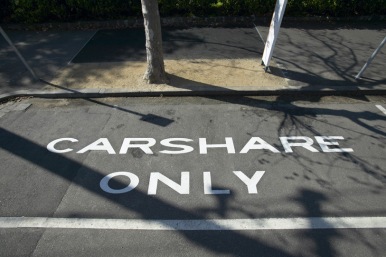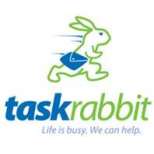 I’m not going to lie: I’m not great at sharing. Growing up in a busy household with four siblings and a menagerie of pets had me scrambling for the spotlight, the last bit of mac n’ cheese and most importantly, the front seat in my mom’s minivan. And yes, I definitely made a line down the middle of my bedroom with blue painter’s tape to keep my older sister away from my Beanie Babies collection. However, with people sharing everything from offices to nannies to parking spaces these days, I think it’s time to give it another whirl. Today’s sharing economy is changing the way we live and do business – and San Francisco is at the epicenter of the movement.
I’m not going to lie: I’m not great at sharing. Growing up in a busy household with four siblings and a menagerie of pets had me scrambling for the spotlight, the last bit of mac n’ cheese and most importantly, the front seat in my mom’s minivan. And yes, I definitely made a line down the middle of my bedroom with blue painter’s tape to keep my older sister away from my Beanie Babies collection. However, with people sharing everything from offices to nannies to parking spaces these days, I think it’s time to give it another whirl. Today’s sharing economy is changing the way we live and do business – and San Francisco is at the epicenter of the movement.
Last month, SF Mayor Ed Lee announced the formation of The Sharing Economy Working Group, which he describes as being aimed at “leveraging technology and innovation to generate new jobs and income for San Franciscans in every neighborhood and at every income level.” ZipCar’s Future Metropolis Index, launched in February 2012, ranked San Francisco as number one in the areas of sustainability, innovation, vibrancy efficiency and livability compared to other major US cities. The growth of the sharing economy in the Bay Area is driven by companies like TaskRabbit, Airbnb and City CarShare, all of which are turning underutilized resources and assets into new jobs, income and community connections.
The sharing economy has produced jobs in surprising ways. TaskRabbit, an SF based company, is described as an “eBay for odd jobs”. It allows carefully vetted unemployed or underemployed individuals to bid on errands or jobs posted by people in their communities. One local businesswoman who sees the value of this unique service is Susan Sarich of SusieCakes, who uses TaskRabbits as her delivery engine for her three Bay Area bakeries. This lets Susan grow her business, provides income to local TaskRabbit micro-entrepreneurs and ensures that she’s not paying for a full-time staff member that she only needs sometimes.

Another way that small businesses are seeing the benefits of the sharing economy is through “co-working spaces”. According to a 2011 study by Deskmag, 42% of people who moved into a co-working environment reported increased salaries, and 76% claimed that the move made them more productive. Sharing working spaces makes it easy for startups to get off the ground without breaking the bank, giving them access to offices, conference rooms and event spaces, as well as typically expensive office equipment. We see the sharing economy embodied in San Francisco’s vibrant food scene, with emerging young chefs sharing kitchens in established restaurants such as Flour + Water and Lung Shan, which is home to the popular Mission Street Food pop-up series. PCV is also joining the movement, along with partners like the SF LGBT Center, Renaissance Entrepreneurship Center and La Cocina, offering affordable office or kitchen space to small businesses to promote their growth and expansion.
By now, you can probably see why I think sharing deserves another shot. Any entrepreneur who takes advantage of their local sharing economy enters into a supportive network of people who want to see them succeed. At the same time, they are also supporting a sustainable economy and helping scale the sharing infrastructure that paves the way for future small businesses to do the same. Yes, I definitely think that sharing deserves another shot – although I’m still calling shotgun.